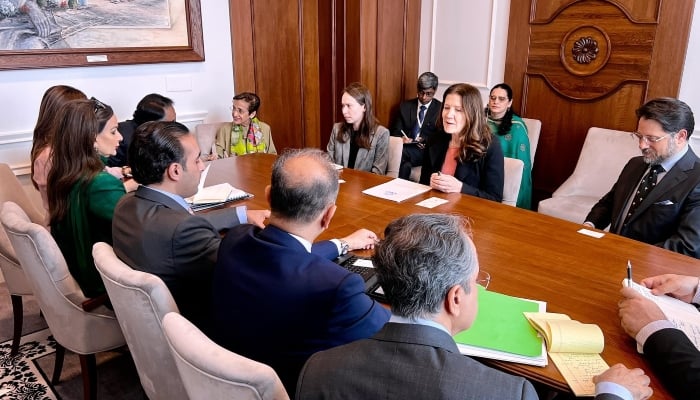KARACHI: Pakistan has initiated the process of drafting a regulatory framework for digital and virtual assets, marking a significant step towards formalising the country’s crypto ecosystem. The development came during a high-level meeting of the Pakistan Crypto Council (PCC), chaired by Finance Minister Muhammad Aurangzeb in Islamabad.
The meeting, held on Monday, was also attended virtually by Bilal Bin Saqib, Minister of State and Special Assistant to the Prime Minister on Blockchain and Crypto, who also serves as CEO of the PCC. It aimed to align Pakistan’s digital finance policies with international standards while encouraging innovation in blockchain technologies.
Joining the discussion virtually was the governor of the State Bank of Pakistan (SBP), while the chairperson of the Securities and Exchange Commission of Pakistan (SECP) and secretaries from the Law and IT ministries were present in person. The main agenda was a draft framework to regulate digital and virtual assets, with a focus on integrating global best practices and preparing for the technological evolution of finance.
Among the proposals discussed was the establishment of an independent regulatory body to oversee crypto activities, ensuring both investor protection and financial transparency. A technical committee—comprising representatives from the SBP, SECP, Law Division, and IT & Telecom Division—has been formed to review the draft legislation and develop a governance structure for presentation at the next PCC meeting.
Finance Minister Aurangzeb reiterated the government’s dedication to modernising the financial sector, stressing that the proposed framework should foster inclusion, transparency, and economic resilience without compromising financial integrity.
This move follows a major announcement made last week by Bilal Bin Saqib at the Bitcoin Vegas 2025 conference in the United States, where he revealed Pakistan’s first government-led strategic Bitcoin reserve.
Meanwhile, the SBP issued a clarification on Friday, stating that while cryptocurrencies are not explicitly banned, they are currently outside the existing legal framework. The central bank explained that it had advised regulated institutions—including banks, development finance institutions, microfinance banks, electronic money institutions, and payment service providers—not to engage in crypto activities due to the lack of legal protections, rather than the illegality of such assets.
This statement came in response to the government’s assertion to the National Assembly’s Standing Committee on Finance that cryptocurrencies remain banned and illegal, and that individuals dealing in such assets may be investigated by the Financial Monitoring Unit (FMU) and the Federal Investigation Agency (FIA).
The path to regulation remains fraught with challenges. During a meeting of the Senate Standing Committee on Information Technology and Telecommunication, concerns were raised over the legitimacy of the PCC and the absence of parliamentary consultation in its formation. Some members questioned whether such a body could be constituted solely through an executive order.
The Ministry of IT clarified that its role had been limited to advising on the council’s terms of reference, but several committee members insisted that the PCC should fall under the Ministry of IT rather than the Finance Division.




